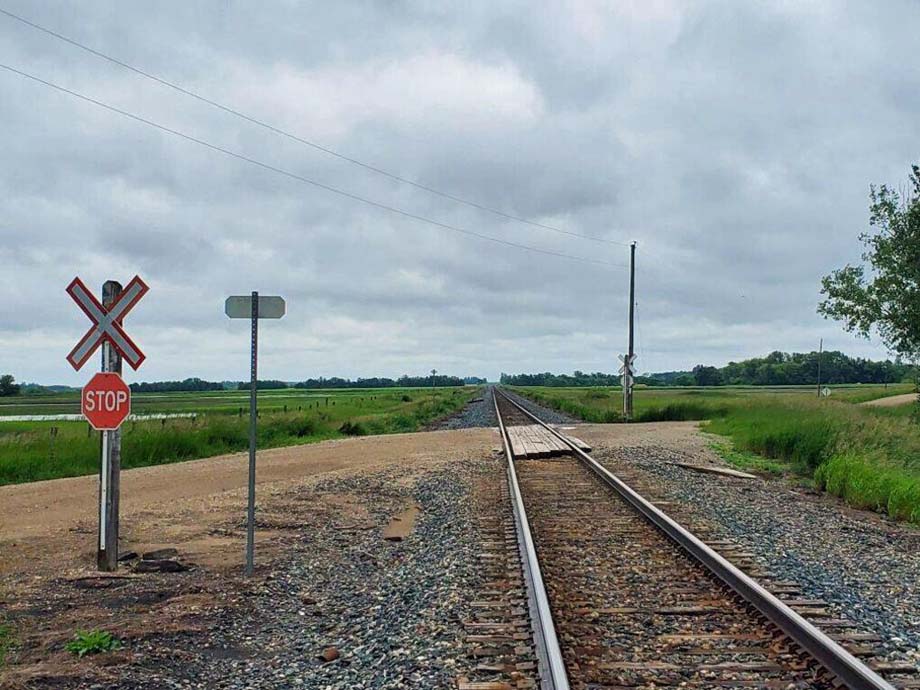
Westman Manitoba - Some farmers and rural landowners in Westman could be asked to foot part of the
bill for upgrades to private rail grade crossings on their property.
Three years ago, Transport Canada (TC) updated its Grade Crossing Regulations to include new amendments that apply to
all public and private railway crossings in the country.
The amendments were put in place to improve safety by bringing sightlines and grade levels into compliance with the new
standards.
A private railway crossing is constituted when there is no public use of the crossing, and the same individual or farm
business owns the land on both sides of the tracks.
In the past, the responsibility for the maintenance of these crossings had been the railway's.
Now that all farm crossings are being classified as private crossings, farmers and landowners could be facing bills
from rail companies such as Canadian Pacific Railway and Canadian National Railway.
Farmers are now also required to have a minimum general liability insurance of $5 million for the crossings, along with
$2 million in automobile liability insurance.
When it's a CP crossing, they must pay the company an annual crossing fee of $350, which is subject to change with
every new annual contract.
Keystone Agricultural Producers (KAP) president Bill Campbell said in a statement to the Sun that while KAP supports
and welcomes the new measures to increase safety at railway crossings, it shouldn't be the responsibility of farmers to
pay for it.
"It is important that these crucial access points are maintained and receive the required upgrades without
imposing additional costs onto agricultural producers. As we have noted in the past, KAP believes the maintenance and
repairs to grade crossing are the financial responsibility of class 1 railways and not farmers."
Campbell said that KAP recommends any farmer who disputes the costs for grade crossing upgrades contact the Canadian
Transportation Agency (CTA), as it is responsible for all disputes relating to federally funded regulated
railways.
Jonathan Abecassis, the senior manager of media relations for CN, told the Sun in an email that private grade crossings
must comply with the federal government regulations.
"Under the regulations, rail safety is a shared responsibility, as is the maintenance and upkeep of individual
crossings," Abecassis said.
Sau Sau Liu, senior communications adviser with TC, also replied to enquiries from the Sun via email.
Liu said TC is committed to protecting all Canadians who live and work along rail lines by putting in place the
necessary measures to reduce the risk of serious accidents.
Liu noted that TC amended the new regulations by extending the compliance deadlines in 2021 after hearing from railway
companies, road authorities, and private landowners.
"These amendments preserve the core safety objectives of the regulations while providing financial relief to
public and private authorities during the COVID-19 pandemic by ensuring that very low-risk grade crossings are not
subject to undue burden."
The regulatory amendments, Liu said, focus efforts on reducing the risks of preventable accidents at grade crossings
while being mindful of economic realities affecting farmers and landowners.
The Brandon Sun reached out to representatives from CP but did not receive a reply by press time.
Miranda Leybourne.
(likely no image with original article)
(usually because it's been seen before)
provisions in Section 29 of the Canadian
Copyright Modernization Act.
